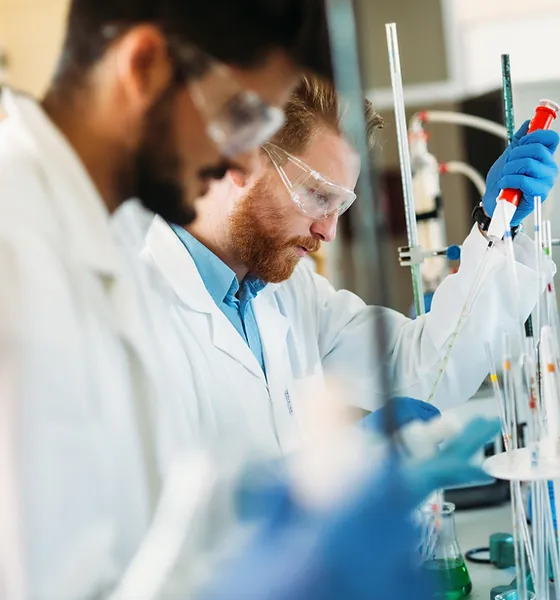
PeptiMatrix is the latest spin-out company from the University of Nottingham, providing access to an innovative 3D cell culture platform that aims to replace the use of animals in research.
With the support of the NC3Rs, BBSRC, and EPSRC, researchers at the University of Nottingham have developed a fully-synthetic self-assembling peptide hydrogel (SAPH) platform, which aims to address all the current shortcomings of available in vitro models.
Current models of development and disease typically rely on animals or animal-derived products, which often do not accurately reflect the physiology of human tissues. This is a major contributing factor to the high attrition rate of new drugs moving from the laboratory to the clinic, leading to an estimated cost of US$2 billion to bring a new life-saving therapy to market.
Growing recognition of this has led to the recent interest in developing more sophisticated, synthetic in vitro model platforms which allow for bespoke customisation of their stiffness and composition. However, despite considerable research effort, no single platform has yet pulled ahead of the competition and researchers continue to rely on animal-derived materials, such as those derived from Engelbreth-Holm-Swarm (EHS) mouse sarcoma.
PeptiMatrix hydrogels are well-defined, have limited batch variability, offer excellent handling properties, and contain no irrelevant animal-derived material. They can also be customised through a variety of available methods to mimic both the stiffness and composition of any target tissue type.
This unique combination of features promises to deliver to researchers more accurate and reproducible data in drug development and investigative research, whilst also helping to reduce the use of animals in research.
Dr Johnathan Curd, Co-Founder and Chief Executive Officer of PeptiMatrix, comments: “Our mission is to bring the next generation of peptide hydrogels for 3D cell culture to the wider research community. Behind this, our passion for reducing, replacing, and refining the use of animals in research is our driving force.
“By bringing a reliable synthetic alternative for animal-derived hydrogels (such as those derived from EHS mouse sarcoma) to market, researchers will be provided a way to generate more accurate and reliable data, whilst also helping to reduce (and eventually replace!) the use of animals in research.”
Professor Cathy Merry, Co-Founder and Chief Scientific Officer of PeptiMatrix, adds: “From the start, we recognised it was critical we built a product that others could use reliably and that could be integrated into their existing experimental workflow. We’ve worked with expert 3D modellers at multiple centres across the world to develop these gels and are delighted to have an affordable solution that fits that remit.”
PeptiMatrix was supported by Nottingham Technology Ventures, who manage the University of Nottingham spin out portfolio. James Duncan, Life Sciences Executive at Nottingham Technology Ventures, said: “It is incredibly exciting time to announce the launch of Peptimatrix. We have been fortunate to collaborate and support the team throughout the development of the company, and we look forward to continuing that journey with support from the University of Nottingham.”
NC3Rs funded much of the initial work to demonstrate the adaptability and ease-of-use of the hydrogels, including funding to support joint projects with The Manchester Breast Centre and The Medicines Discovery Catapult. To help bring this technology to market, the team at the University of Nottingham developed their business proposition first through the ICURe programme and then through a project funded by the University’s Strategic Innovation Fund. Following this, they were successful in securing grant funding from the ICURe Follow-on-Fund offered by Innovate UK.
Dr Kamal Badiani has also been involved with the development of the hydrogel matrix technology by developing the desired, high-quality peptide(s) for the hydrogel platform. Consequently, the platform now offers superior reproducibility when compared to similar biomaterials currently on the market. Dr Badiani continues to be involved with the project as a non-executive director of PeptiMatrix.
Related
Comments
Nobody has commented on this post yet, why not send us your thoughts and be the first?








